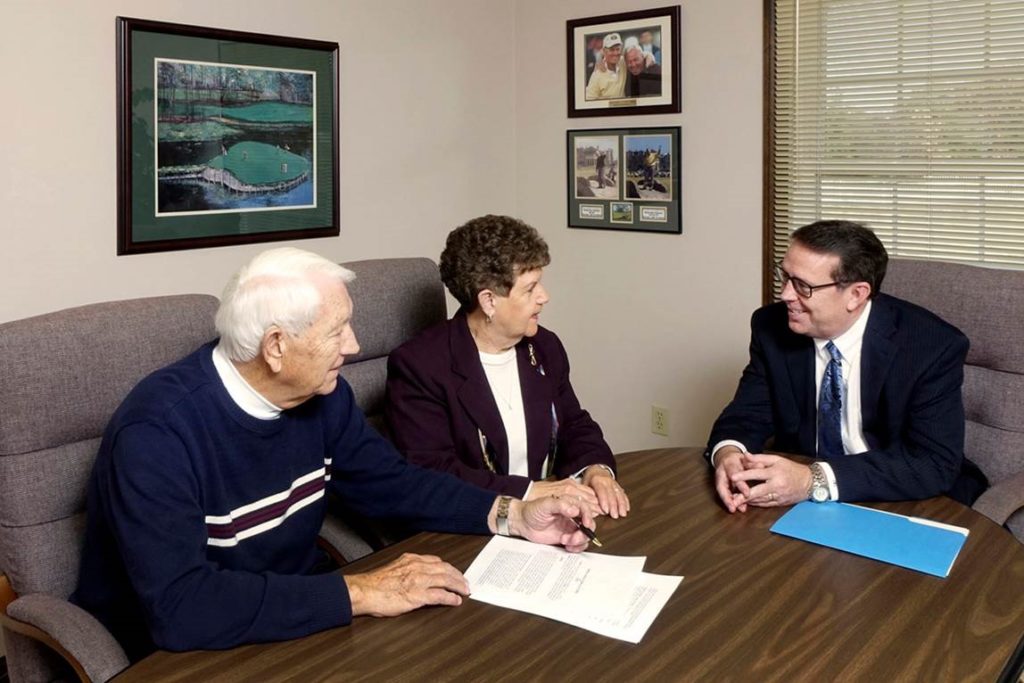Yahoo News says in its recent article entitled “What Is Elder Law?” that the growing number of elderly in the U.S. has created a need for lawyers trained to serve clients with the distinct needs of seniors. At Beck, Lenox & Stolzer Estate Planning and Elder Law, LLC, LLC, Rudy Beck was one of the first estate planning attorneys in the area to add Elder Law to his practice over 20 years ago. He has conducted many seminars over the years, educating other attorneys and the general public about what’s elder law and who needs it.
The National Elder Law Foundation defines elder law as “the legal practice of counseling and representing older persons and persons with special needs, their representatives about the legal aspects of health and long-term care planning, public benefits, surrogate decision-making, legal capacity, the conservation, disposition and administration of estates and the implementation of their decisions concerning such matters, giving due consideration to the applicable tax consequences of the action, or the need for more sophisticated tax expertise.”
The goal of elder law is to ensure that the elderly client’s wishes are honored. It also seeks to protect an elderly client from abuse, neglect and any illegal or unethical violation of their plans and preferences.
Baby boomers, the largest generation in history, have entered retirement age in recent years. Roughly 17% of the country is now over the age of 65. The Census estimates that about one out of every five Americans will be elderly by 2040.
Today’s asset management concerns are much sophisticated and consequential than those of the past. Medical care has not only managed to extend life and physical ability but has itself also grown more sophisticated. Let’s look at some of the most common elder law topics:
Estate Planning. This is an area of law that governs how to manage your assets after death. The term “estate” refers to all of your assets and debts, once you have passed. When a person dies, their estate is everything they own and owe. The estate’s debts are then paid from its assets and anything remaining is distributed among your heirs.
Another part of estate planning in elder law concerns powers of attorney. This may arise as a voluntary form of conservatorship. This power can be limited, such as assigning your accountant the authority to file your taxes on your behalf. It can also be very broad, such as assigning a family member the authority to make medical decisions on your behalf while you are unconscious. A power of attorney can also allow a trusted agent to purchase and sell property, sign contracts and other tasks on your behalf.
Disability and Conservatorship. As you grow older, your body or mind may fail. It is a condition known as incapacitation and legally defined as when an individual is either physically unable to express their wishes (such as being unconscious) or mentally unable to understand the nature and quality of their actions. If this happens, you need someone to help you with activities of daily living. Declaring someone mentally unfit, or mentally incapacitated, is a complicated legal and medical issue. If a physician and the court agree that a person cannot take care of themselves, a third party is placed in charge of their affairs. One party may act as guardian, having broad authority over the adult’s medical and personal life. The same party or a different one may become the conservator and have broad authority over the adult’s financial affairs.
Government programs. Everyone over 65 will, most likely, interact with Medicare. This program provides no- or low-cost healthcare. Social Security is the retirement benefits program. For seniors, understanding how these programs work is critical.
Healthcare. As we get older, health care is an increasingly important part of our financial and personal life. Elder law can entail helping a senior understand their rights and responsibilities when it comes to healthcare, such as long-term care planning and transitioning to a long-term care facility.
Hopefully, you have a good idea of what’s elder law and who needs it. If any of the above information is applicable to you or an elderly loved one, it would benefit you to schedule an appointment with an experienced elder law attorney to discuss your personal situation and concerns. If you need help finding such an attorney, Beck, Lenox & Stolzer recommends searching for one in the National Academy for Elder Law Attorneys’ online directory. You can find it at naela.org. You can also obtain more information here: https://beckelderlaw.com/elder-law/
Reference: Yahoo News (Jan. 26, 2020) “What Is Elder Law?”










